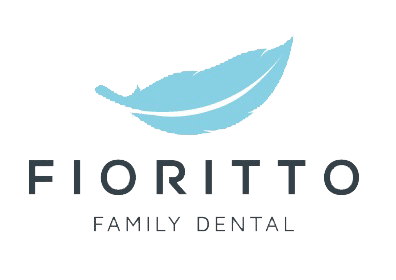Two people with the same dental hygiene routines can experience drastically different outcomes. While some people go through life without ever developing cavities, others might require serious interventions—even if they’re diligent in brushing, flossing and visiting the dentist.
Your genes play a role in how likely it is that you’ll develop certain dental health issues, and how severe they may be. When you understand how genetics can affect your oral health, it’s easier to make adjustments and take proactive steps to protect your smile.
What do genetics have to do with oral health?
Genetics examines how traits and characteristics are passed down from generation to generation. These can be superficial traits, like height or hair and eye color, but genetics also affect issues like hereditary diseases.
When it comes to oral health, our genetic variations can influence the likelihood of developing certain conditions and diseases. While genes don’t necessarily mandate whether you’ll develop certain issues, they can contribute to oral health outcomes.
It’s also important to recognize that your genes don’t act alone. They interact with environmental factors. For example, things like poor diet and oral hygiene practices can have a negative effect, even if your family typically has good oral health.
How do your genes determine your dental health?
Here are some examples of how genes can contribute to different outcomes:
- Cavities or tooth decay: Certain genes can increase the risk of cavities. These genes can affect enamel strength, saliva composition and how well you can neutralize acid in your mouth.
- Genetic risk of oral cancer: Some genetic markers are associated with an increased risk of oral cancer. Understanding these markers—or even knowing your family’s history—can help with early detection. Your Fioritto dentist can also help you develop prevention strategies.
- Periodontal (gum) disease: Some genetic variations impact how susceptible you are to gum disease, and how severe it’s likely to become. The genes related to immune response and inflammation can affect whether you develop periodontal disease.
Genetic testing can be a valuable tool in dentistry and oral healthcare. By analyzing an individual’s genetic profile, dentists can gain insights into their predisposition to certain oral health conditions. For example, genetic testing can help identify patients who may require more vigilant preventive measures or personalized treatment plans.
However, you don’t need genetic testing to maintain a healthy smile. If you’re aware of common family oral health issues, such as a family history of gum disease, tell your Fioritto dentist. We’ll pay careful attention to any potential areas of concern.
Lifestyle matters
While genetics play a big role in your overall health, they’re not the sole determinant. You still need to keep up with good oral hygiene practices. Regular brushing, flossing and dental check-ups are essential.
Certain lifestyle factors, such as a healthy diet, avoiding tobacco products and managing stress can mitigate the impact of genetic risks on oral health. In short, even if your family history makes it more likely that you’ll have certain dental health issues, there’s plenty you can do to keep your mouth healthy.
Reach out to Fioritto Family Dental today to schedule your next appointment—and be sure to tell us whether you have a family history of dental issues. We’ll help design a treatment plan for your unique needs.
